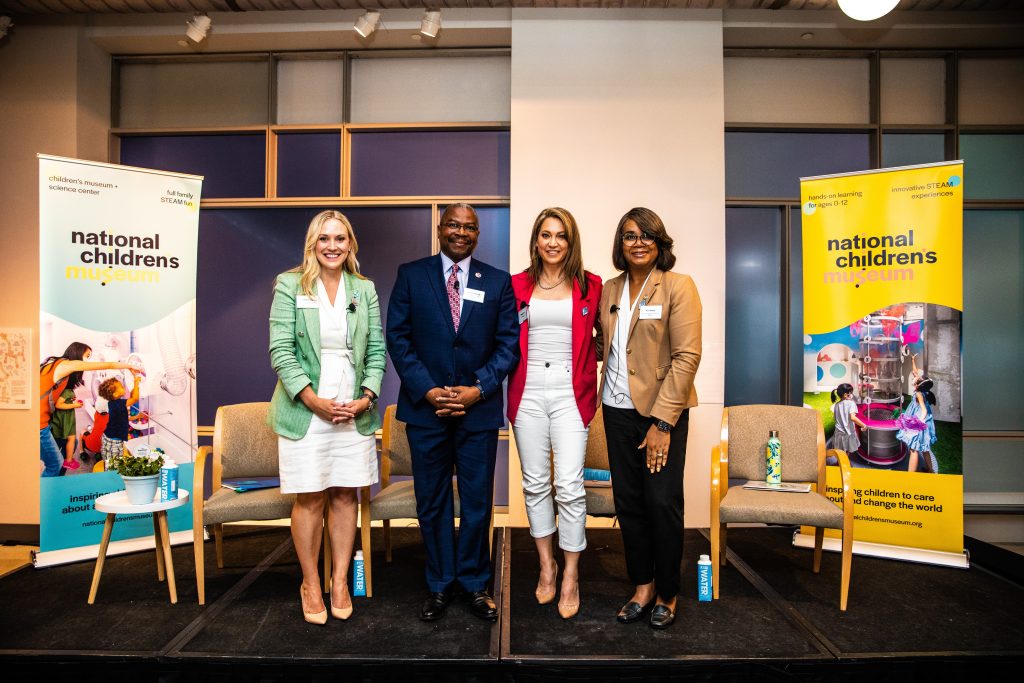Children’s museums are constantly responding to the current needs of the children and families in their communities, from health to academics to social issues, as seen in their exhibits, outreach, and programming. Children’s museums also fulfill their roles as responsive, audience-focused institutions by striving to reflect and address community needs through the experiences they create.
While ACM and the children’s museum community cannot eliminate all the threats to children’s health, safety and well-being, the organization is committed to using its playful learning approach, and its advocacy, programming, and community partnerships to address these problems proactively and with a sense of urgency.
Recently ACM’s Executive Director, Arthur G. Affleck III participated in a special roundtable discussion hosted by the National Children’s Museum in Washington, D.C. Joined by Ginger Zee, Chief Meteorologist and Managing Editor Climate Unit at ABC News, and Kim Noble, Senior Advisor for Environmental Education at the US Environmental Protection Agency, Arthur explore the topic of Climate Action Heroes: Empowering Future Climate Innovators. The full roundtable discussion can be viewed here.

Moderated by Crystal Bowyer, President & CEO of National Children’s Museum, central themes from the panel focused on climate and humanity, easing climate anxiety, partnerships, and the power of play.
Children, as the most vulnerable group affected by climate change, also hold the greatest potential as agents of change and resilience. To nurture the next generation of climate innovators, it is crucial to instill a love for nature and science through play-based, interactive learning, emphasizing hope rather than fear. It is the shared duty of public and private sectors to forge partnerships that promote awareness and inspire action in this endeavor.
“This isn’t about science, it is not about statistics, it is not about how high the water level was… it’s about the humanity of the people … that’s what we can give children. Not just the education and the information but where and how do I take action with whatever I have in front of us?”
Ginger Zee
“We can talk to children in a way that doesn’t come from a place of fear but a place of possibility. We can confront climate change and talk to our kids in a way that teaches them about creativity, innovation, resilience. We can teach them what it means to imagine a world with a planet with clean air, clean water, for everyone. That learning can come from a place of growth.”
Kim Noble
“The reason why play is so important is that you want the lesson to stick, you want children to want to know more about it. If you make it fun, if you make it interesting, if you make it interactive, and iterative, and joyful: they are likely to get the lesson. We use play-based approaches to teach about climate and so many other concepts.”
Arthur Affleck
Climate Action Heroes is part of the National Children’s Museum innovative educational programming. More information may be found at the NCM website.